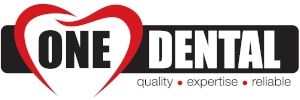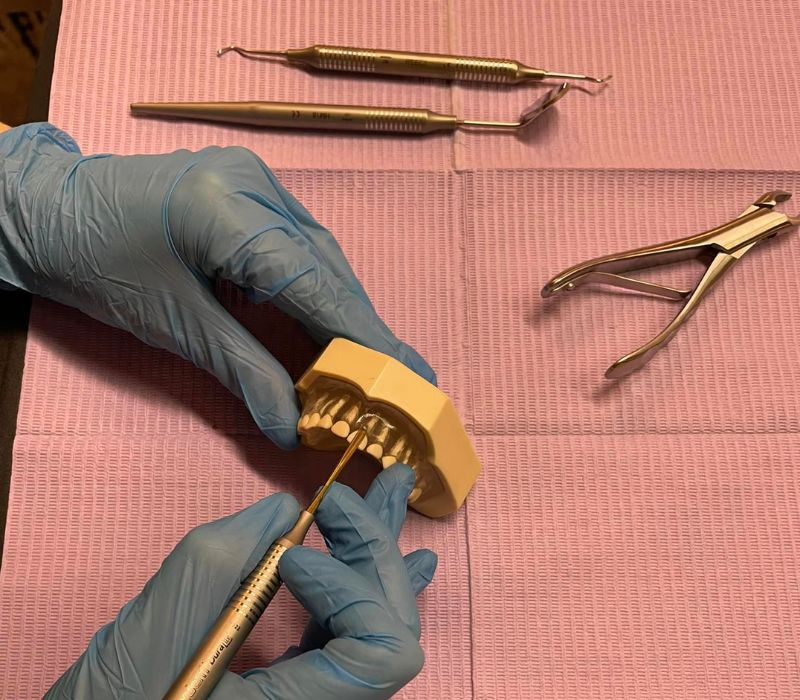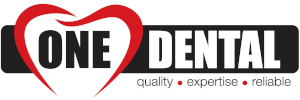|
One Dental Pty Ltd |

|
|---|
Tools of the trade: The importance of learning how to maintain dental instruments early
September 7, 2023
Dental instruments are more than just items; they are essential tools for oral health. A dentist is just like a skilled artisan - their proficiency is influenced by the calibre of their equipment. However, optimal performance is contingent upon meticulous upkeep. That's why learning how to maintain them is something that training bodies try to instil in dental students from the outset of students' educational journey.
At One Dental, we are your trusted supplier for dental education in Australia. We specialise in importing, manufacturing and distributing cutting-edge, clinically validated dental items, including customised student course kits. All of these products require a certain level of care in order to enhance their performance and longevity.
Good habits are always best instilled early
Cultivating good habits early provides a conducive environment for growth and fosters lasting success. Just as we teach children values and behaviours from the beginning to ensure they absorb them and carry these learned traits into adulthood, dental professionals who start with effective habits are poised for a thriving career.
Similar to the innocence and receptivity of a young child's mind, a novice dental student embarks on their educational journey with freshness. When they establish correct techniques, routines and the right mindset early on, they pave the way for excellence and minimise possible setbacks.
Students can swiftly acquire undesirable habits, often before they are even aware. Dental students - it is imperative to start learning how to maintain and clean your instruments for the continuous and long-term optimal condition of your tools.
What happens to instruments that you don’t properly maintain
Proper maintenance of dental instruments is pivotal for ensuring patient safety and delivering high-quality care. Regular upkeep preserves their precision and functionality, promoting accurate diagnoses and effective treatments.
When students neglect this, dental instruments quickly lose their edge. Dull tools can cause discomfort and prolonged procedures for patients. Even more concerning, inadequate instrument sterilisation can lead to cross-contamination, posing serious health risks.
Devoting time and attention to instrument maintenance is an investment in patient wellbeing and the professional’s reputation. Well-maintained tools facilitate smoother procedures, accurate results and a safer environment for everyone involved.
The foundations of dental instrument maintenance
Dental instrument care encompasses various aspects, and manufacturers provide detailed maintenance instructions for each instrument. Key foundational care areas include lubrication, sharpening, rust prevention and proper handling and storage. It is wise to maintain detailed records of instrument usage, sterilisation and maintenance to facilitate tracking and ensure compliance with regulatory requirements. Also, you need to complete regular inspections for signs of wear, damage and corrosion.
Certain instruments, like handpieces and movable components, benefit from appropriate lubrication to minimise friction and wear, thereby prolonging their lifespan. Precision and patient comfort necessitate regular sharpening of tools, particularly items such as scalers, curettes or instruments used for cutting and scraping, which should also undergo routine inspections.
Stainless steel tools can rust if not properly maintained. To prevent this, ensure they are completely dry before storage. Follow all manufacturer’s guidelines for handling and storage, maintaining a clean, dry and dust-free environment. Organise tools to prevent contact between sharp edges to prevent damage and preserve sharpness.
Cleaning and sterilisation
Thorough cleaning is the first and probably most important step in instrument care. After each use, rinse instruments to remove debris, blood or contaminants. Use a soft brush and neutral pH detergent for manual cleaning, or opt for ultrasonic cleaners as an alternative.
Following cleaning, sterilisation is imperative to eliminate all microorganisms. Autoclaving, using high-pressure steam, is the most common method. Proper packaging is essential to maintain sterility until the next use.
Ensure you always use compatible and recommended cleaning solutions and sterilisation methods. Mixing incompatible materials or methods can result in instrument damage.
Talk to the experts in dental education supply
Remember, investing in care and maintenance is an investment in your tools and equipment.
Dental students should undergo comprehensive training in instrument care and maintenance right from the start to establish a strong foundation for their dental careers. Staying updated through ongoing education is essential for keeping up with the latest techniques and best practices.
At One Dental, our friendly, knowledgeable team can offer the best advice and support in selecting the right supplies and tools for your educational journey.
Talk to our team today to discuss your needs or to learn more about instrument maintenance and care.


